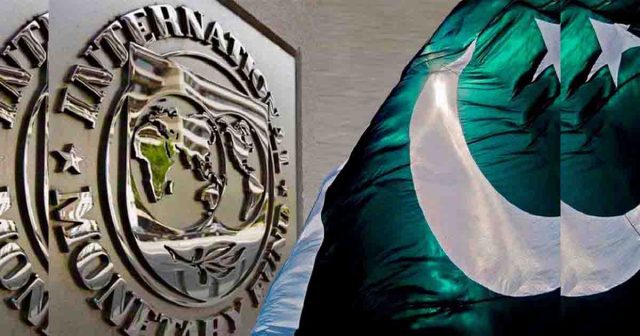
The Dawn, Pakistan’s prestigious English newspaper, in its editorial said that a larger, medium-term IMF bailout, with complementary financial support from ‘friendly’ countries, is imperative for the country to address its balance-of-payments troubles.
According to the editorial titled “Tough talks”, the key to unlocking fresh IMF funds lies in convincing the lender that Pakistan is now ready to undertake real reforms.
Seeking a bailout of $6bn-$8bn before the current fiscal year ends, Pakistan Finance Minister Muhammad Aurangzeb is set to hold discussions with the Fund for new lending on the margins of the IMF and World Bank spring meetings in Washington, as well as muster the support of ‘friendly’ nations for its request, the Dawn editorial says.
According to the country’s finance minister, negotiations for the new loan will not be easy even though the Fund is “very receptive” to Pakistan’s request for a new programme.
Earlier in March, Pakistan and the IMF reached a staff-level agreement for the release of $1.1bn from a $3bn bailout package the indebted South Asian country badly needs to pull itself from a crisis and avert a sovereign default.
According to reports, the country is desperately seeking financial assistance from global lenders and bilateral partners to shore up its $350bn economy, which has been under severe strain for two years.
Factors that caused the downturn in Pakistan’s economy
With a population of 240 million people, Pakistan has a gross domestic product (GDP) of $376 billion, which is slightly larger than Hong Kong’s GDP.
Pakistan’s economy was already struggling after years of financial mismanagement and political instability, but in 2023, the country was pushed to the brink by a global energy crisis caused by the Russia-Ukraine war and catastrophic floods that impacted the lives of millions of Pakistanis.
According to experts quoted by Time magazine, Pakistan was hit by the ‘Triple-C crisis’ — Covid pandemic, the conflict in Ukraine, and climate change. All three factors aggravated Pakistan’s economic situation.
In 2022, a devastating flood drenched a third of the country at one point, leaving 8 million people displaced and more than two million houses damaged.
This flood also resulted in economic losses of more than $30 billion, according to an assessment from the Pakistani government in partnership with the United Nations (UN), the European Union (EU), the Asian Development Bank (ADB) and the World Bank (WB).
The Bureau of Emigration, in 2022, recorded more than 750,000 people leaving Pakistan, a threefold increase from 2021, as crushing poverty and shrinking job prospects have driven emigration out of the country.
The South Asian nation witnessed a record-high inflation as the Pakistani government struggled to implement a recovery plan.
The government increased energy subsidies and depleted the country’s foreign exchange reserves to a critically low level of $2.9 billion, the lowest in nine years, to boost its popularity with voters.
Will the IMF bailout help Pakistan’s economic recovery?
The new IMF funds will likely bring short-term relief by unlocking credit from other financiers, including the private market, and strengthening prospects for foreign direct investment, according to reports.
Besides, Saudi Arabia announced to provide a $2 billion financial support to Pakistan.
However, analysts and political advisers warned that in the long term, these funds are only a “band-aid solution” unless the government in Pakistan can implement the serious, large-scale reforms required to tackle issues like a heavy reliance on costly fuel imports, an agricultural sector grappling with water and energy shortages, a lack of investment in public welfare, and a political elite prone to corruption, according to a Time magazine report.
Meanwhile, the Pakistani government now faces repaying a huge amount in debt, and it is almost impossible for the country to repay without further financial assistance from lenders like China and Saudi Arabia, as well as another IMF bailout.
ENDS






